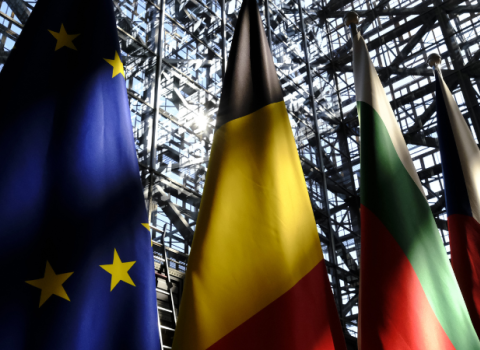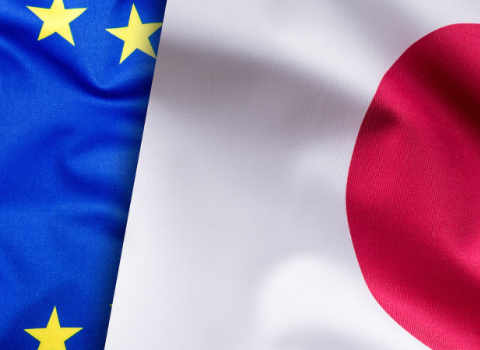Heightened cooperation between the EU and India reshapes calls in clusters 5 and 6

Photo credits: Alexander Psiuk / Unsplash
Official drafts of Horizon Europe’s 2025 work programmes have been published by the European Commission, detailing changes in topics and budgets compared with earlier versions shared by Science|Business over the past few months. Here are some of the most striking changes, including the influence of stronger research ties between the EU and India.
Cluster 1: health
The estimated budget for this cluster amounts to €843.79 million, up from €803.19 million in a December draft. This is mainly due to an additional €40 million that has been allocated to two-stage calls addressing intellectual disabilities, mental and brain disorders, and the impacts of micro- and nanoplastics on human health. Together these topics will receive a total of €210 million.
Meanwhile, a new topic has been added on improving recognition and treatment of under-researched diseases, such as autism and lower back pain. This has been allocated €30 million.
Cluster 2: culture, creativity and inclusive society
As in the March draft, the total estimated budget for the whole cluster stands at €362.80 million, with calls for proposals addressing topics ranging from autocratic movements to the role of artificial intelligence in the creative industries.
Cluster 3: civil security for society
An earlier draft for Cluster 3, circulated in December, signalled a hike in funding for cybersecurity research, but neither the calls nor the additional budget in this area are included in this official release.
The overall budget is €247.83 million, a slight increase compared with the €244.08 million stated in the leaked draft. New topics include humanitarian demining and robotics for high-risk disaster response.
Cluster 4: digital, industry and space
The budget decreases from the €1.62 billion stated in an October draft to €1.57 billion, mainly due to reductions in funding for calls related to climate neutrality, critical raw materials, robotics and standardisation and knowledge valorisation.
Cluster 5: climate, energy and mobility
The total budget for this cluster, which wasn’t indicated in previous drafts, is €1.23 billion.
The April 2024 version of this work programme included placeholders for joint topics with India, which the EU has since invited to consider joining Horizon Europe. The two trade partners agreed at the time to cooperate on “exceptional coordinated calls” on the recycling of electric vehicle batteries, marine plastic litter and waste-to-renewable hydrogen. The final topic is confirmed in this cluster, while marine plastic litter is covered in Cluster 6. Cooperation with India on battery recycling has yet to appear.
Meanwhile, several calls have been added to this draft, such as supporting smart energy systems, the use of carbon capture in replacing fossil fuels, and the circular transformation of the EU’s automotive industry. Finally, a call for proposals targeting the detection of maritime litter and pollution policies for ships has been moved to Cluster 4.
Cluster 6: food, bioeconomy, natural resources, agriculture and environment
The estimated budget stands at €967.70 million, in line with February draft plans and down from a version circulating in October 2024.
Under this cluster, a call for proposals initially addressing the cumulative impacts of marine pollution on marine organisms and ecosystems will now be limited to collaborations with partners in India.
Widening participation and strengthening the European Research Area
Compared with an October version of the work programme, the estimated budget rises from €194.00 million to €214.50 million. The European Excellence Initiative, which aims to improve the visibility of Europe’s higher education institutions, will receive an additional €20 million.





 A unique international forum for public research organisations and companies to connect their external engagement with strategic interests around their R&D system.
A unique international forum for public research organisations and companies to connect their external engagement with strategic interests around their R&D system.